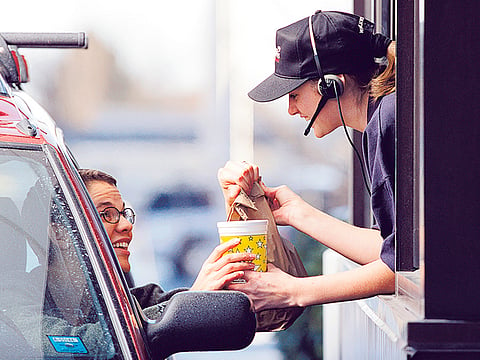Shop talk: Using tech to heat up the food delivery business
There is so much that can be done to ensure the all-important timely delivery

The business of delivering food is undergoing rapid change in the Middle East due to market dynamics, customer behaviour and the role of technology. According to McKinsey & Company, the worldwide market for food delivery stands at $102 billion (Dh375 billion) — or 1 per cent of the total food market and 4 per cent of food sold through restaurants and fast-food chains.
While the food delivery market has already matured in the West, with an approximate annual growth rate of 3.5 per cent for the next five years, markets across the Middle East and Asia are still playing catch up. In the UAE, people are increasingly choosing to order their meals online, where delivery has become an everyday aspect of living for locals and expats alike.
With busy work schedules and family commitments, fewer people have time to prepare their meals at home. As in several other sectors, the rise of digital is reshaping the food delivery market. Customers are becoming accustomed to shopping online through websites and apps, with convenience, transparency and trust and expect the same experience when it comes to ordering their meals.
Today, apps such as Zomato, Talabat and Deliveroo allow consumers to compare menus online, scan through reviews and photos, and place orders from a variety of restaurants with a single click and also have the option to track their deliveries online. Food delivery has become a gamechanger in Dubai’s F&B market given the growth of food apps and a large part of restaurant business comes from food apps and online portals.
On-demand food delivery is already possible due to technology and the industry is moving towards more innovative approaches to exceed customer expectations. AI (artificial intelligence) and machine-learning applications are becoming a mandate for the food service industry and can be leveraged to improve offerings, optimise operations, and deliver a superior customer experience.
The market for AI is expected to grow to $5.05 billion by 2020. While every industrial sector is taking this massive opportunity into consideration, the food industry is also playing catch up in this sphere.
Food logistics is very different from parcel or freight logistics. Food has be to delivered within extremely short periods to maintain their freshness and taste. As a digital logistics provider, FarEye leverages the AI platform for last-mile logistics, which enables faster and personalised deliveries at lower costs.
This technology adds a layer of visibility and efficiency to processes and helps restaurants make real-time data backed decisions and in parallel empowers consumers with easy deliveries and offer alerts and notifications. The AI platform intelligently allocates orders to riders based on their estimated time of arrival to the store/restaurant and is also integrated with last-mile logistic companies to build an elastic — or expandable — network for handling peak demands considering the time and cost.
The platform also offers system-based scoring of each delivery and improvement areas for riders to increase efficiency to deliver food faster to consumers. Consumers will be able to order their meals during peak times, track their food easily and share feedback where required.
From a business point of view, the technology enables restaurant managers to determine peak period, the manpower required, approximate deviations In estimated time of arrival and expected delivery time.
The future of food delivery technology is here. It allows consumers to plan ahead or order on the go, adapting to the changing habits of today’s shoppers. Restaurants are increasingly migrating to online channels, a trend that is expected to continue to grow for the food category.
The time is quickly approaching when consumers will expect all their meal orders to be made over apps and will desire speedy delivery service and more pickup options. Today, we’re all interested in a better ability to customise our meals according to our preferences.
To meet such demands and provide customers with convenience, restaurants and meal delivery services need to up their game and embed such options in their apps for consumers. As is evident, the effects of technology on food delivery is to be a revolution with far-reaching significance.
— Kushal Nahata is CEO and co-founder of FarEye.



